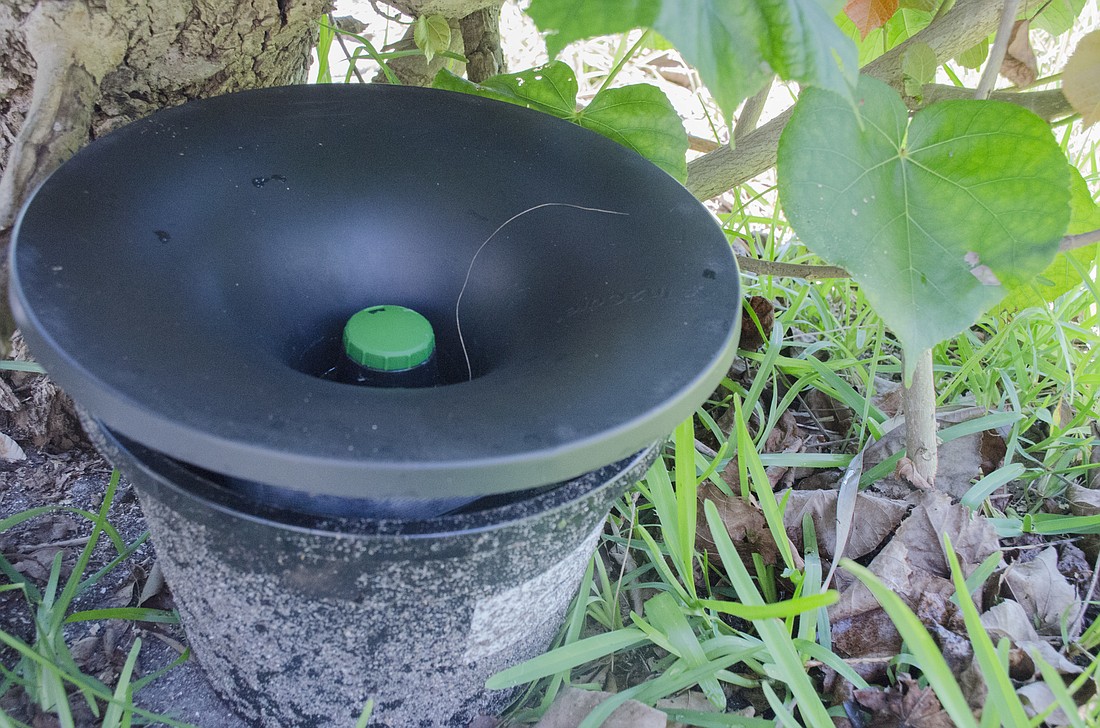- July 4, 2025
-
-
Loading

Loading

The buzz of mosquitos has quieted somewhat on the north end of Longboat Key, thanks, in part, to a Manatee County Mosquito Control District experiment there.
Dutch-made In2Care mosquito traps have been stifling the number of mosquitos on the north end of Longboat Key for about three months now. Manatee County Mosquito Control District Assistant Director Chris Lesser called the results of the experiment “encouraging.”
“We know were seeing a reduced number of mosquitos on Longboat Key,” Lesser said. “But we’re also seeing reduced number of mosquitos in other areas of the county.”
So how do they know the number of mosquitos is down from last year? Well, there’s anecdotal evidence — Bus Fischer said he’s noticed fewer mosquitoes this year than in years past.
Mosquitos used to swarm outside Fischer’s lanai every evening when he and his wife would have dinner there. Now Fischer, who has three traps on his property, said he hardly notices the nuisance insects around his north-end home.
“Whatever they’re doing, it turned out well so far,” Fischer said. “We haven’t seen the swarms like we have in the past.”
The traps, which look like black, five gallon buckets, are hard to find — the ones on Fischer’s property are hidden in vegetation. Fischer said he had to search for the traps because “you don’t notice them.”
Of the 213 homes asked to participate in this no-cost mosquito control program, 189 said yes, Lesser said. That’s about 90% of the property on the north end of Longboat Key with mosquito traps, accounting for 577 traps.
“That’s pretty darn good,” Lesser said.
But even with the positive results that are coming from this experiment, Lesser said he’s skeptical that the In2Care traps could be effective on a larger scale. That’s because keeping the traps is labor intensive, Lesser said.
Each month, employees from the Mosquito Control District must change the water inside the traps to ensure that there’s proper amounts of chemicals designed to kill mosquito larvae in them.
Mosquito Control District employees must also ensure that none of the traps were tipped over by animals. They also count the number of mosquitos that land on their bodies in a five-minute period as data to determine if the traps work.
All that work is necessary to ensure the experiment works — something Lesser said he was not so sure the community would be willing to do. If people don’t take the time to dump water from containers in their backyards that can breed mosquitoes, how can they be trusted to maintain traps that require more intensive care, Lesser said.
“I’m a bit skeptical that the public would put in the effort to maintaining these traps,” Lesser said.
But Fischer said he wouldn’t mind the labor: he thinks it would be easy.
“If that were an option and I had the material and the procedure, I’d be glad to do it,” Fischer said. “The results are worth it.”